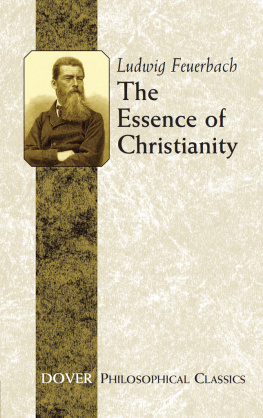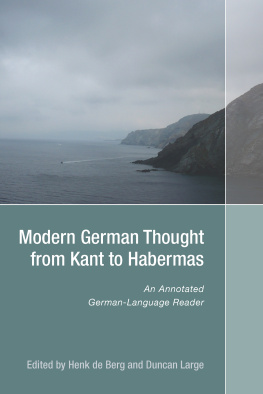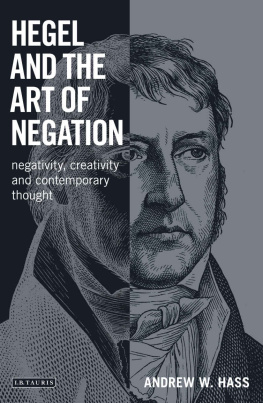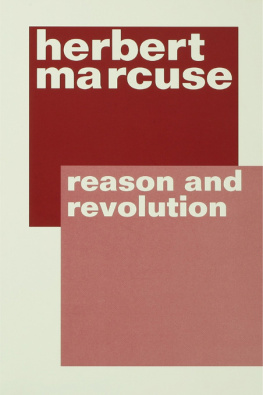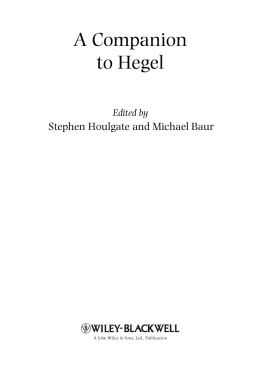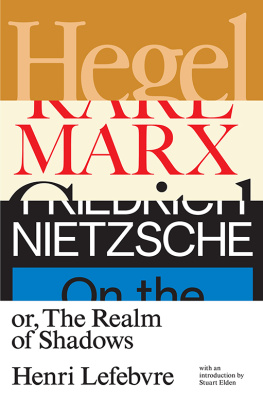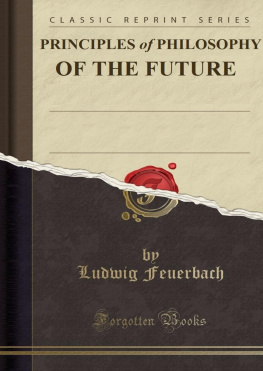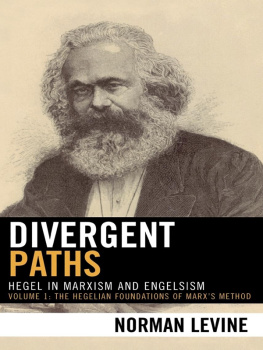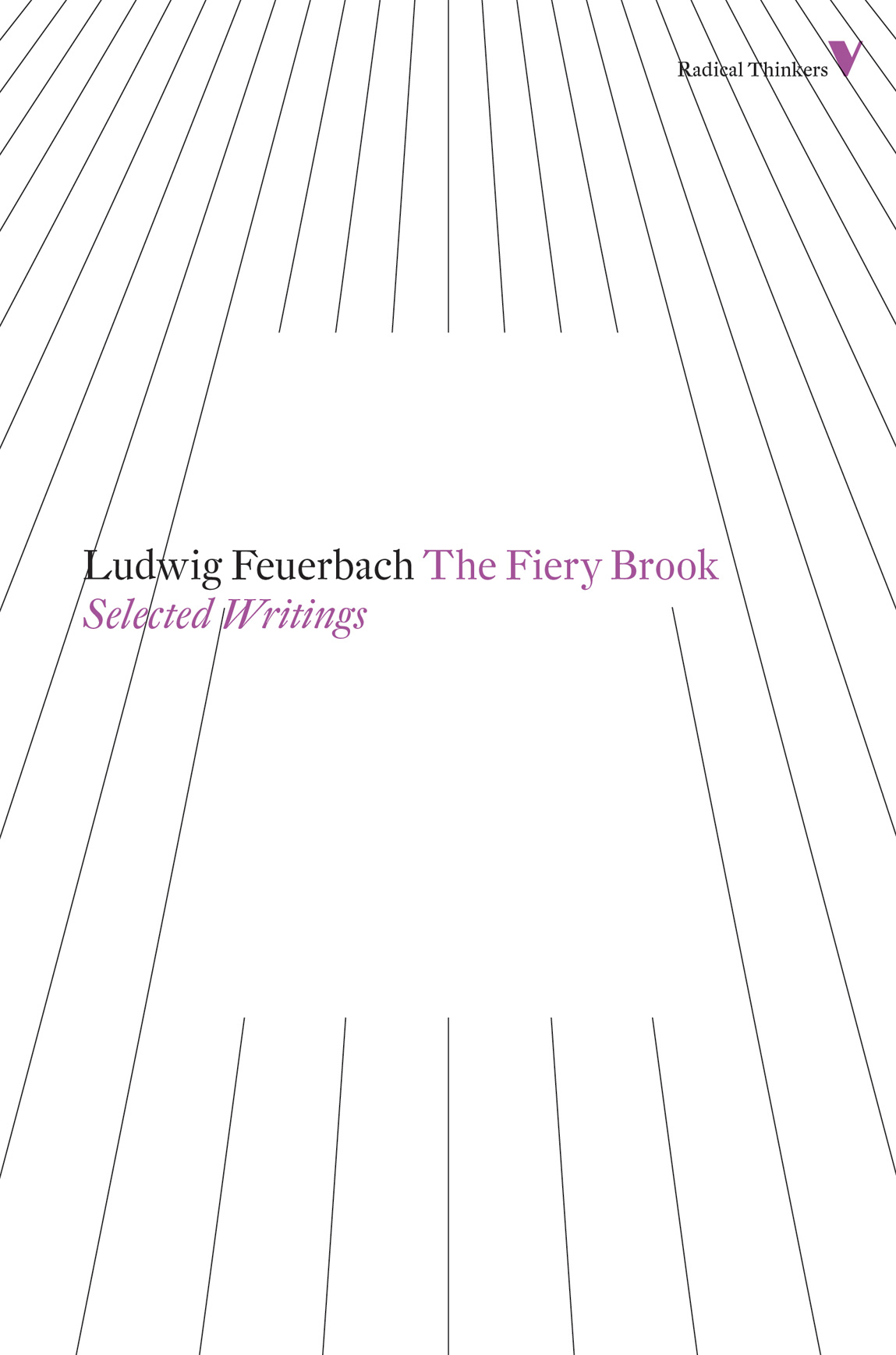Published by Verso 2012
Verso 2012
First published in English by Anchor Books 1972
Translation and introduction Zawar Hanfi 1972
All rights reserved
The moral rights of the authors have been asserted
Verso
UK: 6 Meard Street, London W1F 0EG
US: 20 Jay Street, Suite 1010, Brooklyn, NY 11201
www.versobooks.com
Verso is the imprint of New Left Books
eBook ISBN: 978-1-78168-033-9
Trade Paperback ISBN: 978-1-78168-021-6
British Library Cataloguing in Publication Data
A catalogue record for this book is available from the British Library
Library of Congress Cataloging-in-Publication Data
A catalog record for this book is available from the Library of Congress
v3.1
FOR BARBARA AND SHIRIN
Was Du ererbt von Deinen Vtern hast, erwirb es, um es zu besitzen.Goethe
Contents
Preface
With the exception of the Introduction to the Essence of Christianity , the Preface to its second edition, and the Principles of the Philosophy of the Future , all other writings of Feuerbach included in this volume are first translations. The Introduction and the Preface to the second edition of the Essence of Christianity have been available in English since 1854 in the excellent translation by George Eliot (Mary Ann Evans). In retranslating them, I have been led by a desire to achieve an overall uniformity of style and terminology, rather than by any false hope of improving upon the inimitable prose of George Eliot. In the case of the Principles of the Philosophy of the Future , a new translation can be more easily justified. Manfred Vogels translation, otherwise quite readable, contains some serious mistranslations. To take one example: By losing sight of the anti-idealist context of Feuerbachs philosophy and by sticking literally to the German expression sich entleiben (literally, to commit suicide), Vogel gives the following rendering: Just as when a man commits suicide he negates the body, this rational limit of subjectivity, so when he lapses into fantastic and transcendental practice he associates himself with embodied divine and ghostly appearances; namely, he negates in practice the difference between imagination and perception. Feuerbach is referring to the neo-Platonic contempt of the body and the senses that carry for the neo-Platonic sage the imperative to detach himself from the body and to regard all corporeality as negative. The German sich entleiben here does not have the sense of committing suicide, but of decorporealizing oneself. A more appropriate rendering would be as follows: Just as by decorporealizing himself or by negating the bodythe rational limit of subjectivityman lapses into a fantastic and transcendent practice, surrounding himself with corporealized appearances of spirits and gods, that is, practically eliminating the distinction between imagination and sense perception.
The Introduction to the volume consists of three sections. In the first section, I have briefly discussed the relevance of Feuerbach to contemporary thought and society. The second section is devoted to an exposition of Feuerbachs philosophy. Its main themes and motives are developed through a discussion of the selected texts in their order of succession. This unfortunately involves some repetition, for which I can only request the indulgence of the reader. In the third section, I have discussed the relationship between Feuerbach and Marx, which, I believe, is demanded by the logic of the historical significance of Feuerbachs philosophy.
I am grateful for the help which Dr. David Roberts so generously extended in reading parts of the manuscript. Dr. John Playford and John Love let themselves be used most amicably as guinea pigs. I am indebted to both of them for their creative listening. I am thankful to Miss Bronwyn Newbold for typing the manuscript.
Melbourne
November 1971
Zawar Hanfi
Introduction
I FEUERBACH TODAY
Feuerbachs philosophy reached the pinnacle of its fame and historical significance in the forties of the nineteenth century and declined sharply in the same decade. He was one of the earliest of those nineteenth-century thinkers who turned their back on the great metaphysical tradition of the West. Although dwarfed by the towering figures of
Feuerbachs philosophy has been discussed almost exclusively within the context of the development of Only after the publication of Marxs early writings has it become possible to resolve the question as to the nature and extent of Feuerbachs influence on Marx. Accordingly, the philosophy of Feuerbach has once again come into the limelight. But again, the interest it commands is determined not so much by its own independent significance as by its relevance to the question about the specificity of Marxs theory.
The assumption that Marx went through a Feuerbachian phase has not gone unquestioned. The Parisian Manuscripts , in which the influence of Feuerbach on Marxs critique of political economy and on his theory of man is decisive, have also been interpreted as determined more by Marxs critical appropriation of Hegels Phenomenology than by the contemplative anthropology of Feuerbach. In an article on the Parisian Manuscripts , also published in 1932,
In recent years, epistemologically much more attuned to the moving principle of Hegels dialectic of negativity.
In view of what has just been said (this question is further discussed in Section III of this Introduction), Althusser is completely wrong in saying that the young Marx was never strictly speaking a Hegelian . It seems that it is primarily due to the idea of exclusivity contained in his concept of problematic that he is driven to the untenable position of having to insist on the nonexistence of Hegels influence on Marx. Moreover, Althusser has yet to establish the truth of his claim. So far, his position is only assertive: So the thesis that the young Marx was a Hegelian, though widely believed today, is in general a myth.
Quite apart from its being bound up with the history of Marxs thought, the philosophy of Feuerbach shares a common ground with contemporary European philosophy with respect to the latters rejection of traditional epistemology. Ever since metaphysics was founded by
Notwithstanding the historical distance separating us from Feuerbach, his philosophy has a ring of contemporaneity about it. This is especially true if we look at it in relation to the present-day movement of radical dissent. It may appear that in its actual practice the advanced industrial society has rendered the critical-emancipatory significance of Feuerbach obsolete. Feuerbachs life was a prolonged victimization by a politically reinforced religious orthodoxy and a religiously reinforced political regime. The society he lived in was in many ways despotic, authoritarian, and puritanically ascetic; it lagged far behind the achievements of the Enlightenment and the French Revolution. The advanced industrial society with its sensual paradise of affluent consumption, its constant accentuation of pleasure, its fusion of sexuality and business, its permissiveness, is worlds removed from the constricting society of Feuerbachs day. Yet with all its acceptance of the body and the senses, of pleasure and sensuality, the advanced industrial society has in no way superseded the image and the role of the senses, the concept of the whole unalienated man underlying Feuerbachs anthropological materialism.


